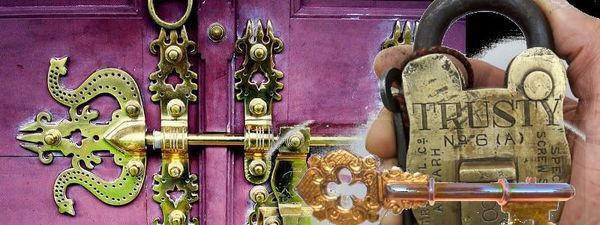There are many things called 'Identity' in our world today, all very different. Let's break it down.
Labels
First, you have a body. Your physical being. The identity of this body, its uniqueness, is characterized by your eye and skin color, your fingerprints, your DNA. It might change over time - height and weight don't always stay the same. Hair color is even less permanent, yet it's on a driver's license. This is the original kind of identity known to our distant ancestors and to animals. It's the one our brains are wired to recognize in face-recognizing neurons. It's the sound of your mother's voice. The look of your face. Your particular gait.
We are talking animals, using sounds (and eventually written symbols) to describe things. A thousand years ago, our village or tribe would attach a persistent name to this identity. These were casual, perhaps something like Farmer, or Running Bear. As we traveled more, naming became more standardized and permanent, eventually forming a foundation of society and government tax rolls. For the individual, it is assigned at birth on an official government birth certificate and follows you until you die, and beyond. This is a tag, a persistent label, for your body.
When we started to record data by writing, and later with pictures and video, both physical and assigned identity forms were documented, cataloged, and correlated. Your passport, for example, is an identity credential issued by a trusted institution - a national government. These documents connect your biological identity with your given identity.
Anonymity
People often have reason to disconnect from their history and consequently escape their reputation. Not to judge, there are good and bad reasons to do this. This has been done since ancient times. Pseudonyms have allowed voices to be heard and people to be unafraid of unjust retribution. Free speech flourishes with anonymity. So does fake speech and anonymity. The idea becomes disconnected from the speaker and their reputation.
Authenticity
Detecting counterfeit credentials and forgeries and guaranteeing their authenticity has always been a challenge. We've often used a government photo ID checked in real life against the face of the holder. We trust the ID card is not forged. To strenghten this approach, we can look up the ID number in an online database that contains a picture which is harder to counterfeit, centralizing the authority. We can make laws that harshly punish counterfeiting.
Being accountable requires skin in the game. Good behavior in a society has always been achieved only by threat of consequences - punishment, physical or financial. To enforce a consequence, a body must be physically captured. Good guys have to be able to find the bad guys, so that the innocent are safe. It's important for justice to be served; to make the guilty accountable and keep the innocent safe.
Identity online
What about identity systems on the internet? Why is there so much fake news, mis- and dis-information, and so many bots? What is going on with Twitter?
Your identity online is completely made up. It's entirely fabricated. Your email address is one you chose, along with your password. Online identity only serves to show that you might be the same entity that logged in last time. This gives a sort of continuity to the businesses that rely on a persistent relationship.
There is no uniqueness or scarcity to online identity. Innumerable new ones can be created constantly. This is a property of software - it can be copied and distributed for free. If you're doxxed, someone has publicly and irrevocably connected this pseudonym to your physical body.
Having pseudonyms is not necessarily a bad thing. Kids get this. Multiple identities for different roles - why not? It's not a big deal, and it's important for freedom.
How then do we maintain some personal responsibility and accountability? Who is actually spewing harmful nonsense into our world?
There is no uniqueness or scarcity to online identity. Innumerable new ones can be created constantly. This is a property of software - it can be copied and distributed for free.
It's not necessarily a bad thing. Kids get this. Multiple identities for different roles - why not?
How then do we maintain some personal responsibility? Who is actually spewing harmful nonsense into our world? Do we need to stop it, or just to discount and ignore it?
This is where Web3 can help. By enabling rigorous uniqueness along with voluntary and selective disclosure, it may be possible to control multiple identities that are persistent and related to each other, including the root physical body-identity, while still being anonymous online. This sounds like a contradiction but there are actually some promising new technologies that may help. I will be writing about zero-knowledge proofs, a magical crypto tool for controlling the spread of information, and perhaps enabling true accountability in online speech.
